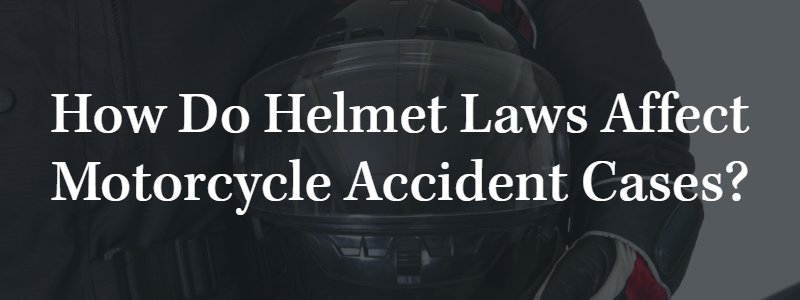There is no denying that motorcycle helmets save lives and prevent serious brain injuries if a motorcyclist crashes. In Pennsylvania, all motorcyclists under the age of 21 have to wear motorcycle helmets, regardless of whether they are the driver or the passenger on the motorcycle. Riders over the age of 21 are allowed to opt-out of wearing helmets if they have at least two years of motorcycle riding experience or if they pass an approved motorcycle safety course. Here, we want to discuss whether or not going without a helmet while riding a motorcycle in Philadelphia could affect your motorcycle crash claim in certain situations.
Wearing a helmet is crucial for safety
Motorcycle helmet laws for those under the age of 21 and for inexperienced riders are in place for a reason. According to studies, wearing an approved motorcycle helmet can reduce the risk of a serious brain injury by 67% and the risk of death by 37% if an accident occurs.
How not wearing a helmet may affect a motorcycle accident case, however, depends on the situation. In general, not wearing a helmet will only impact a motorcycle accident claim if the at-fault party can show a casual relationship between the failure to wear a helmet and the plaintiff’s accident and injuries. In other words, it will need to be shown that the failure to wear a helmet contributed to the accident in some way in order for the plaintiff’s recovery of compensation to be affected.
The simple failure to wear a helmet would not keep a plaintiff from recovering compensation if they were injured due to the careless or negligent actions of another driver. This may reduce the amount of compensation they are able to recover, but only if a jury finds that the plaintiff was negligent.
Rider negligence and motorcycle accidents
The defendant (at-fault party) in a motorcycle accident case may try to use negligence per se against the plaintiff in a motorcycle accident case if the plaintiff was not wearing a helmet.
Negligence per se is a legal theory that refers to negligence in the form of violating a law. Any person asserting negligence per se will not need to show proof that the other party was negligent beyond the fact that they violated the law.
Failing to wear a motorcycle helmet could qualify as negligence per se if the motorcyclist was indeed breaking the law by not wearing the helmet. A defendant in these cases could use the lack of wearing a helmet as proof that the plaintiff was comparatively negligent in the case, thereby contributing to their own injuries due to their breaking the law. This, in turn, could reduce the amount of compensation that the defendant has to pay the plaintiff. This negligence per se defense will only work if wearing a helmet reasonably could have prevented the injuries in question.
For example, it is unlikely that the defendant in a motorcycle accident case will be able to use negligence per se in an effort to get out of compensating a motorcycle accident victim for a broken leg caused by the crash. A helmet is designed to protect a motorcycle rider from head injuries, not any other type of injury that could occur due to the negligence of other drivers on the roadway.
Additionally, this negligence per se argument is not going to work if the motorcyclist was legally operating without wearing a helmet, which generally makes up most motorcycle riders in the Commonwealth.
Our Philadelphia motorcycle accident attorney will work hard to obtain full financial recovery for you as the victim of a crash or a mourning family member. Find out if you have a case today by calling (610) 692-8700.
